Went on a run and couldn't NOT write about it…
This better not be one of those pieces about how much I love running. I am going to try very hard to not let it be one of those pieces.
I want to talk about adaptive sports again, even though it feels like it’s all I talk about lately. I want to talk about how it's been over two weeks since my adaptive crew and I raced 16.5 miles up the tallest ski mountain in California. How I know I'm fully falling into the post-grad running trope. And how, on the way home from the race, after we, a visibly disabled group of athletes, ran and received countless “You’re so inspiring!” comments, I asked my crew if they ever found some part of them enjoying this mild tokenism. And without missing a beat, my friend shot back: “Fuck yeah. We ARE inspiring.”

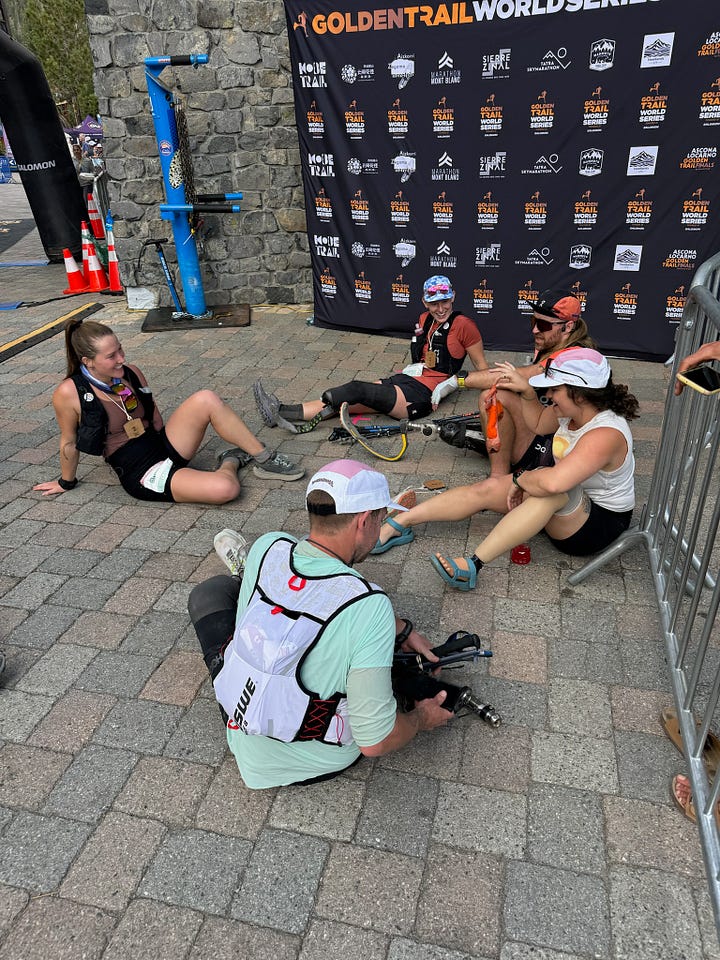
The numbers feel fairly important, so let’s start there. These are things, I’ve gathered, that runners mention: starting at 8,000 feet with around 3,700 feet of drastic vertical gain. It’s fun to know and use the lingo of a sport, I’ll admit. But what I really want to talk about is pride — especially pride felt in a body that has been hated for so long.
To be proud. Why is it so hard?
I’ve been proud before, of course. But to be proud of my body? Proud of a body that I tucked away? A body I stopped letting run after someone in 8th grade track said my stride was ‘lopsided’? And for many of my fellow adaptive athlete friends too—proud of bodies that carry real pain and frustrations? This is a different kind of pride, I think.
The race itself was a total mindfuck—over 4 hours of my mind throwing its absolute worst at me.
I know this is a universal experience.
Whether you're a disabled or non-disabled runner, or anyone pushing through an endurance sport, this misery wasn’t unique (as much as my ego tried to tell me it was). I was not alone in the barrage of internal stories telling me to stop — every moment where I was convinced I could not catch my breath. The real fear wasn’t that I couldn’t do it physically, but that I would accede to these stories. That I’d become the person who can’t. The one I’ve built up in my mind like a little gargoyle, blocking me from being myself, from even trying.
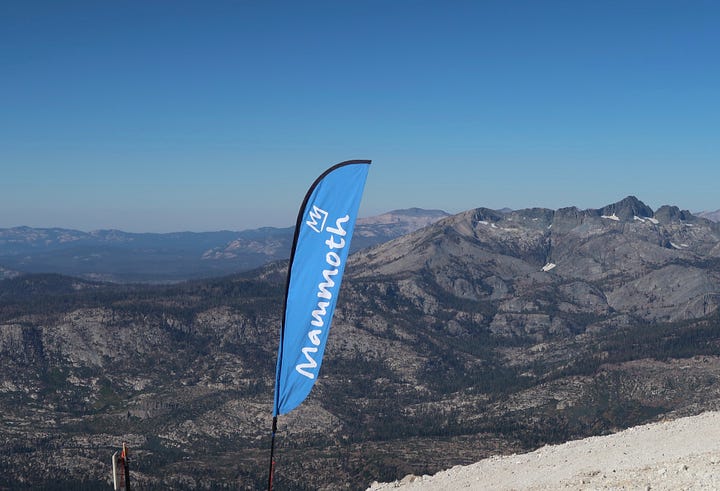
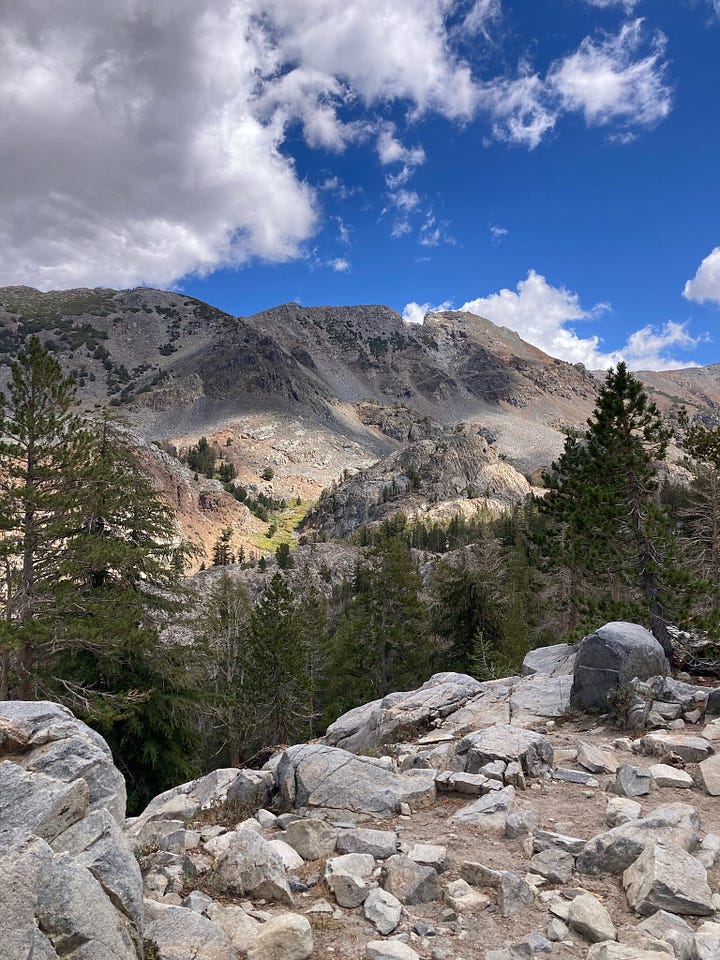
It was over an hour into the race, and I was on the hardest uphill segment, attempting to reach the top of Mammoth. Each step felt like I was barely moving. I was trying my best to convince myself that this was the last uphill switchback, only to be faced with yet ANOTHER one.
My breath was heavy, constricted in my chest.
My cheeks were red,
Face flecked with salt.
My little mind gargoyle, hard at work.
Thinking I won’t make it. But then, taking one step at a time,
And I am above the tree line.
On the final uphill climb,
Visualizing the summit,
Moving up and up.
And with one final step —looking down at Mammoth Lakes.
And it felt fucking amazing. Can we pause for a moment to talk about how amazing that felt? Maybe it was the lack of oxygen (surely, it was the lack of oxygen), and all of those happy brain-chemicals… but I felt it in my body. Such an overflow of feeling that I immediately began texting out strings of misplaced i love you’s, to anyone and everyone in my recent message history.
To be proud. What does that mean, really? What was there to be proud about my body there? Here? Not in comparison to others, but just as they are, as it is. Not the stuff I’m supposed to say when people ask, but what is really truly beautiful?
I was struck by the absurdity of how long I had spent hating my body. It felt like such a disservice — not just to myself, but to any body. Funny, of course, that it took a brutal 16.5-mile race up California’s tallest ski mountain for me to realize this: I’ll be spending the rest of my life in this body, so maybe I could enjoy moving it?
Running is vulnerable, I think. Running while disabled is really vulnerable.
Running gives you no choice but to try, and in trying, you expose yourself—your imperfect stride, your wobbly weaknesses, your lopsided arm pump.
For me and my fellow adaptive athletes, running also means exposing both your body and the extra work it takes to move it. It’s confronting your body’s asymmetry, its aches and pains, the inevitable chafing and blistering in a prosthesis. It’s pre-planning for how to change liners, or how to switch legs mid-race (in awe of you both, Taylor & Nicole), ensuring the screws are extra tight, and carrying the extra gear you need.
And the ego! Oh my gosh, the ego. Running exposes your ego on a good day and a bad day. Comparison, comparison, comparison. Watching the runners up ahead, like little ants on a hill, seemingly unfazed by the difficulty. And your little gargoyle shows up again to remind you: But you aren’t a runner like THEM.
The race is over now. Today, the soft spot on my shoulder that was sore from pumping my arm no longer hurts, and the toenail I lost is growing back and I think that the narrative of I can’t has softened too.
It’s hard to access those feelings of pride now, sitting here and writing this. My friend at her birthday dinner the other day shared that her greatest lesson this past year is that you can’t truly understand something until you, yourself have felt it in your body.
And I know that I felt it then.
What would it mean to continue to know my own courage? I think some part of me fears doing this, for fear it would somehow spoil me — make me egoic or self-centered. But isn’t self-abnegation also self-centered?
Another part of me is afraid that if I take credit for anything I have done, I am somehow dismissing that I still have work to do, or not acknowledging my privilege, or not addressing how lucky I have been, or not thanking all the people who have helped. As if I have to be finished to be proud.
Ha! as with many things, I make it more complicated than it is.
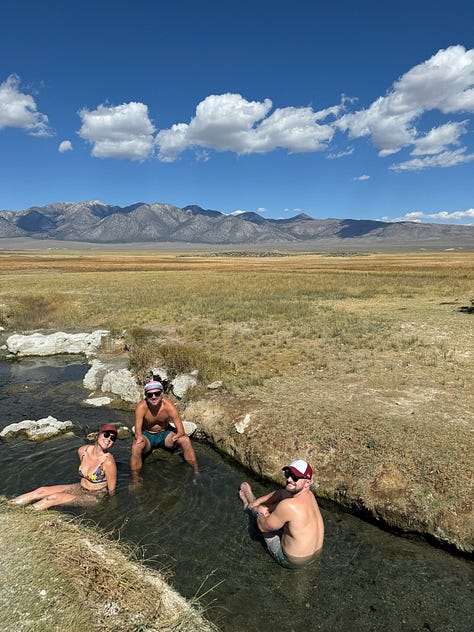

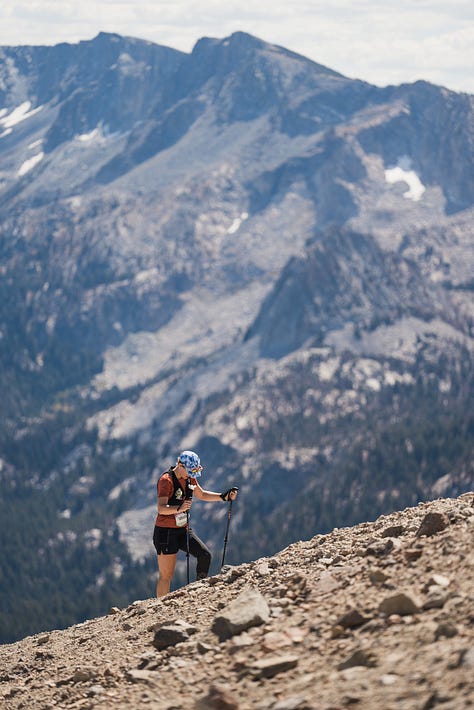
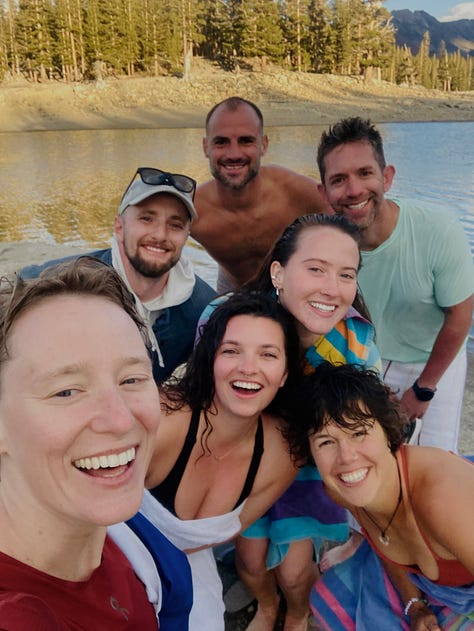
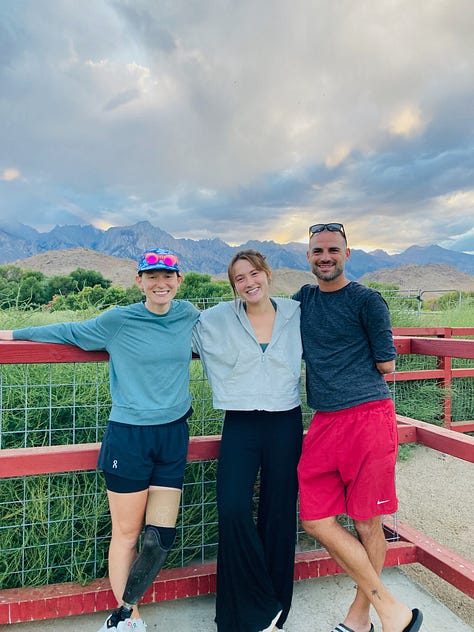
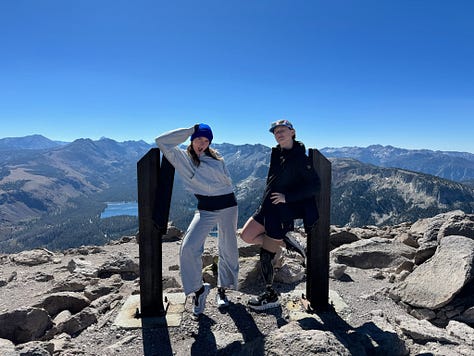
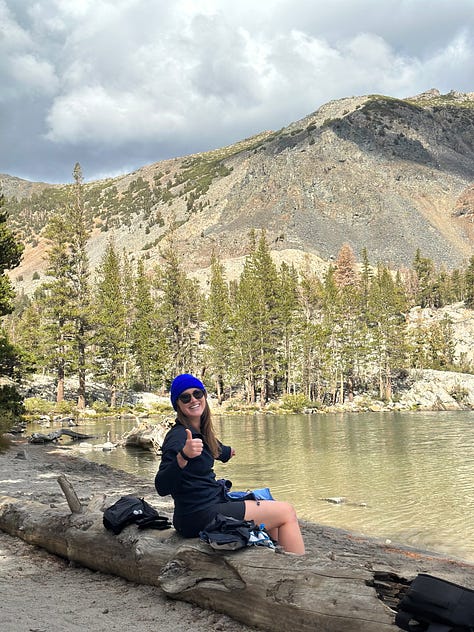
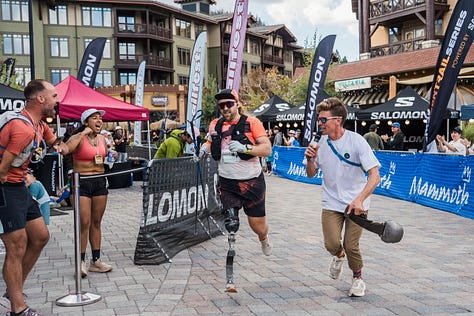
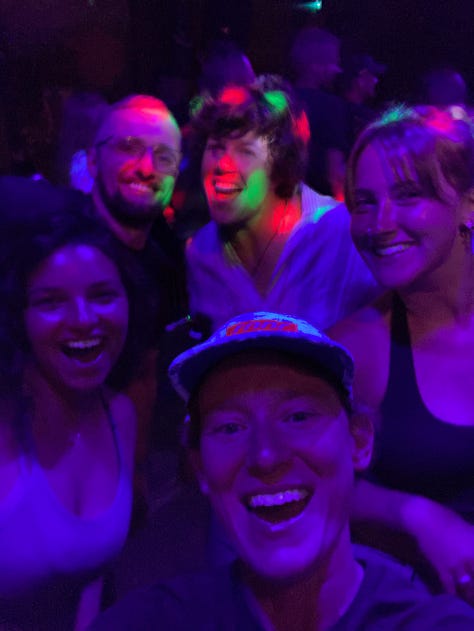
I don’t want to know everything about running. But I do want to feel proud. I want to feel gratitude. I want to lay my ego out. I want to feel the wind on my face. To meet fear and doubt with curiosity, with courage, and with red cheeks. I want to keep trying. And trying and trying. I want to see myself clearly. As clearly as I see the incredible people I raced alongside with – as people who have tried very hard to meet their lives with curiosity and courage and compassion.
We can be proud of that.





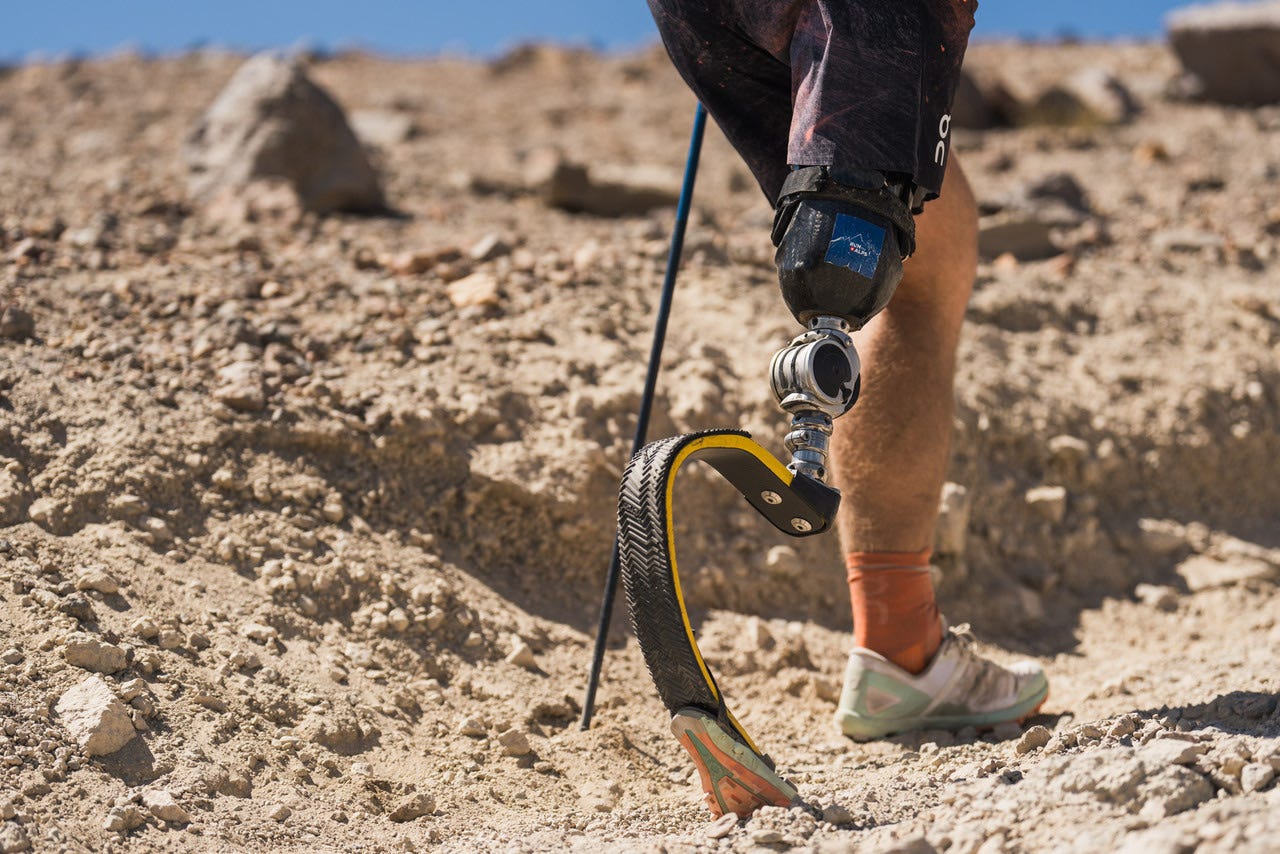
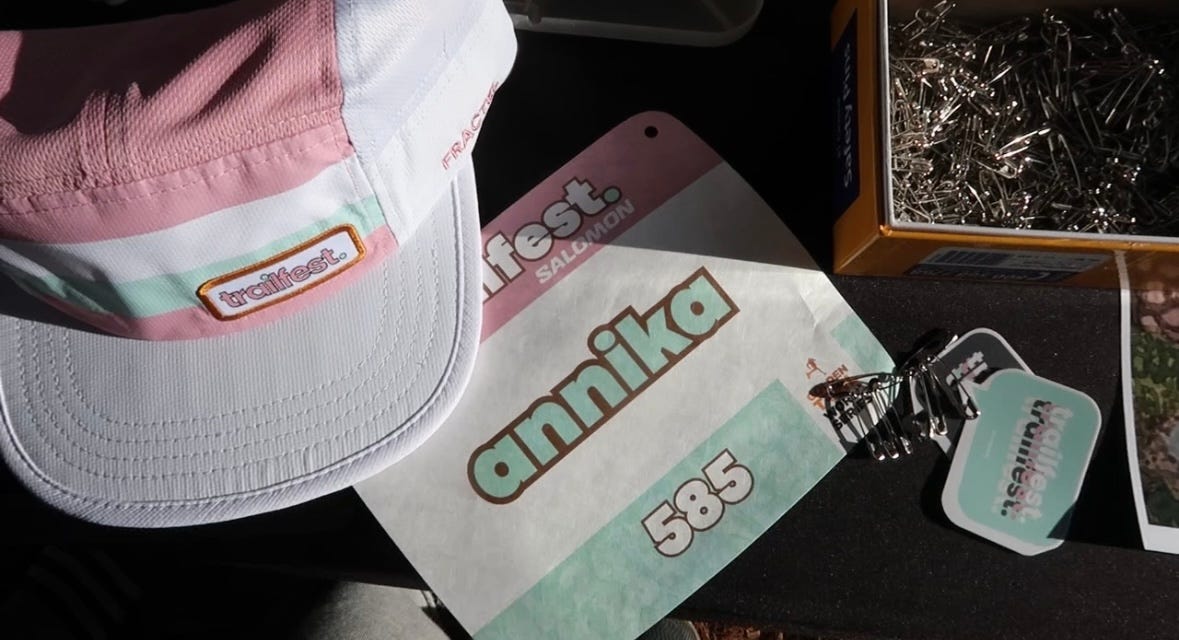
I love running. Running somehow manages to put everything into perspective. It’s very cool hearing your experience in the sport. Also, this is badass.